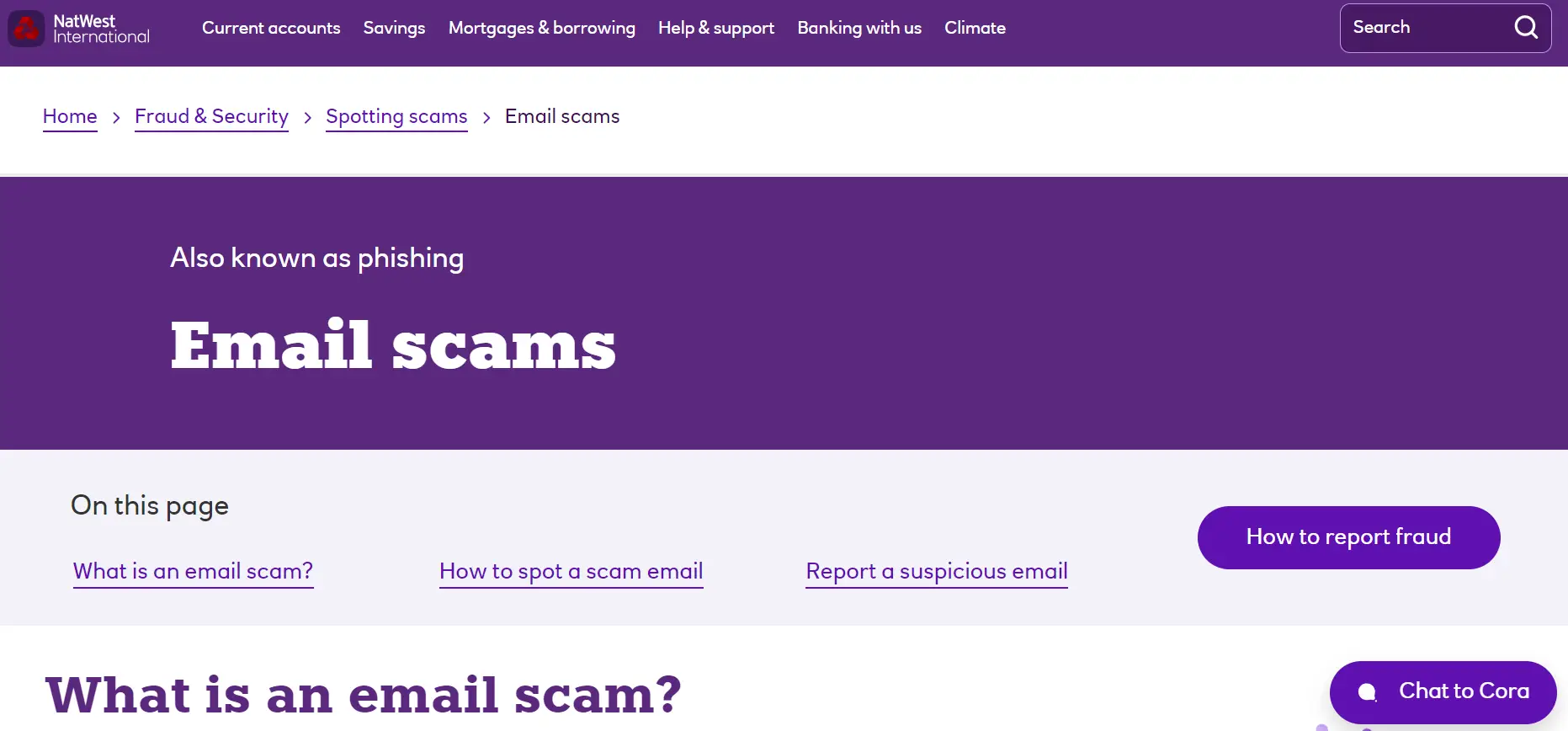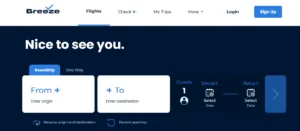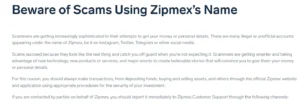NatWest Scam Email Alert – Are you a NatWest customer? Be on high alert!
NatWest is issuing a warning about a phishing email scam specifically targeting your bank accounts.
The scam involves an email claiming that your mobile number linked to your online account has been changed.
Don’t fall for it! The email asks you to click on a link to cancel the request, but it’s a trap that takes you to a fake NatWest online banking site.
Stay vigilant, protect your personal information, and report any suspicious activity immediately.
Table of Contents
What Is the Email Phishing Scam?
You should be aware of the email phishing scam that targets NatWest customers. This scam claims that the mobile linked to their online account has been changed.
The scammers send a one-time passcode to the recipient’s old number and then ask them to click on a link to cancel the request. However, this link takes the recipient to a fake NatWest online banking site.
There are several signs that can help you identify this scam. The email address ends with @natwestsecure.com instead of @natwest.com. Additionally, the email starts with ‘Dear Customer’ instead of addressing you by name.
If you suspect that you have fallen victim to this scam, it is important to take immediate action. Contact your bank to report the scam and change any compromised passwords.
You should also report the scam to Action Fraud or Advice Direct Scotland. Forward the scam email to report@phishing.gov.uk. If you suspect a scammer is calling, hang up immediately.
Stay vigilant and protect your personal information to prevent financial loss.
How Does the Email Phishing Scam Work?
To understand how the email phishing scam works, pay attention to the signs of a fraudulent email. These signs include an incorrect email address or a generic salutation.
The phishing email scam targeting NatWest customers starts by claiming that the mobile linked to their online account has been changed. It then tricks recipients into clicking on a link to cancel the request, which takes them to a fake NatWest online banking site.
Some signs that the email is a scam include the email address ending with @natwestsecure.com instead of @natwest.com, and the email starting with ‘Dear Customer’ instead of addressing the recipient by name.
To report email phishing scams effectively, contact your bank immediately if your bank details are compromised and change any passwords that have been leaked or compromised. You can also report scams and fraud to Action Fraud or Police Scotland.
Forward scam emails to report@phishing.gov.uk and forward scam text messages to 7726 for free.
Educating others about email phishing scams is an effective way to protect them. Stay updated on the latest scams and fraud techniques, and be vigilant in protecting personal information to prevent financial loss.
Red Flags and Warning Signs
Pay attention to red flags and warning signs, such as incorrect email addresses and generic salutations, to identify potential phishing scams. Here are four common email phishing techniques to watch out for:
Spoofed email addresses: Be cautious if the email address doesn’t match the official domain of the organization it claims to be from. For example, if you receive an email from NatWest but the address ends with @natwestsecure.com instead of @natwest.com, it may be a phishing attempt.
Generic salutations: Legitimate emails usually address you by your name. If you receive an email that starts with ‘Dear Customer’ or something similar, it’s a warning sign that the email may be a scam.
Errors in the content: Phishing emails often contain grammatical or spelling mistakes. Look out for any suspicious errors, such as misspelled words or awkward sentence structures.
Lack of personal information: Legitimate emails from organizations often include identifiable information about you, such as your name or partial postcode. If an email lacks this information, it may be a phishing attempt.
Customer Reviews and Warnings
Be cautious of suspicious reviews and warnings from other customers to stay informed about potential phishing scams. The impact of email phishing scams on victims’ financial well-being can be devastating. It is crucial for banks to take an active role in educating customers about email phishing scams.
Here are some important points to consider:
- Victims of phishing scams can suffer significant financial losses, as scammers gain access to their bank accounts and personal information.
- Banks have a responsibility to educate their customers about the signs of phishing emails and how to protect themselves.
- By providing clear and concise information about phishing scams, banks can empower their customers to identify and avoid potential scams.
- Regularly updating customers about the latest phishing techniques and scams can help prevent them from falling victim to these fraudsters.
- Customers should feel a sense of belonging and trust in their banks, knowing that they are being protected and informed about potential threats.
How to Protect Yourself From Email Phishing Scam?
Stay informed and protect yourself from email phishing scams by regularly checking for signs of suspicious emails and verifying the authenticity of websites before entering personal information. Here are some tips for securing your online banking:
- Be cautious of emails that ask for personal information or login credentials. Phishing emails often have generic greetings like ‘Dear Customer’ instead of addressing you by name.
- Pay attention to the email address. Legitimate emails from your bank will have a domain that matches the bank’s official website. Be wary of email addresses that are slightly different or have unusual extensions.
- Check for spelling and grammatical errors in the email. Phishing emails often contain mistakes, such as typos or incorrect grammar.
- Be skeptical of urgent requests or offers that seem too good to be true. Phishing emails often create a sense of urgency to trick you into taking immediate action.
- If you suspect an email is a phishing attempt, do not click on any links or download any attachments. Instead, contact your bank directly to verify the authenticity of the email.
Conclusion – NatWest Scam Email
To avoid falling victim to phishing scams, remember to always verify the authenticity of emails and websites before entering any personal information. Cyber security measures are of utmost importance in protecting yourself from these malicious attacks.
If you suspect a phishing attempt, there are specific steps you can take to safeguard your information. First and foremost, contact your bank immediately if your bank details have been compromised. Change any passwords that may have been leaked or compromised as well.
It is crucial to report scams and fraud to the appropriate authorities, such as Action Fraud or Advice Direct Scotland. Forward any scam emails to report@phishing.gov.uk, and if you receive suspicious calls, hang up immediately and search for contact details online.
Frequently Asked Questions
What Is the Typical Subject Line or Content of the Phishing Emails Targeting Natwest Customers?
The subject line of phishing emails targeting Natwest customers may vary, but common tactics include claiming a mobile number change, sending a one-time passcode, and requesting clicking on a link to cancel the request.
Are There Any Specific Actions That Recipients Are Asked to Take in the Phishing Emails?
In phishing emails, recipients are asked to click on a link to cancel a request, but it leads to a fake NatWest site. To identify phishing emails, look for errors in the email address, generic greetings, and fake websites.
How Can Customers Differentiate Between a Genuine Email From Natwest and a Phishing Email?
To protect your personal information from phishing scams, be cautious of emails that don’t address you by name, have incorrect email addresses, or contain errors. Verify authenticity by contacting your bank directly.
Are There Any Specific Measures That Natwest Advises Customers to Take if They Fall Victim to the Phishing Scam?
If you fall victim to a phishing scam, NatWest advises you to contact your bank immediately, change compromised passwords, report the incident to Action Fraud or Police Scotland, forward scam emails to report@phishing.gov.uk, and never call back the scammer’s number.
Is There Any Information Available on the Consequences or Risks Associated With Falling for the Phishing Scam?
If you fall for the phishing scam, consequences include compromised bank details, potential financial loss, and increased risk of identity theft. It’s crucial to report scams, change passwords, and stay vigilant to avoid these risks.
Also Read
Is Joules UK Scam or Legit? – Uncover the Hidden Secrets!
Cath Kidston UK Outlet Clearance Online Store Scam
Aus Vehicle Check Scam or Legit? Don’t Be a Victim!
Also Read
Scoredit.Com Review – Is Scoredit a Scam or Legit?
Timall.Shop Scam Exposed – Don’t Be the Next Victim!
Is Lowesus.shop Scam or Legit? Lowesus.shop Review
Also Read
Is Chuperex Legit or Scam? Avoiding Crypto Scams
Is Breedbarley.com Scam or Legit? Avoid Being Scammed!
Is Home Title Lock Scam or Legit? Discover the Truth!
Also Read
Is Videowalca Scam or Legit? Videowalca.Com Review
Gotexer Scam Crypto Website! Don’t Fall for Their Tricks
AnyVan Postman Scam – Beware Of Fb Marketplace Scam!
Also Read
DVLA Scam Explained – Don’t Fall Victim to Fraudsters!
Arwop Fashion Reviews – Is Arwop Fashion Legit or a Scam?
Ciciful Clothing Reviews – Real Insights and Potential Concerns
Also Read
Musabela Shoes Reviews – Is Musabela Legit or a Scam?
Lerynne West Scam – Discover the Shocking New Lottery Scam!
Regatta Discount Scam Exposed – Don’t Be Fooled by Unbelievable Deals!
Also Read
Is Natwest My Rewards Legit or a Scam? NatWest Reward Review
Macquarie Leasing Class Action Scam Text Exposed!
Benoit Dageville – Discover the Untold Story of Benoit Dageville!
Also Read
Is ACN Phone Scam or Legit? Discover the Truth About ACN!
Ohio Electricity Litigation Email Scam – Don’t Fall Victim!
Meta Support Team Scam – Don’t Fall Victim to Their Sneaky Tactics!

















































